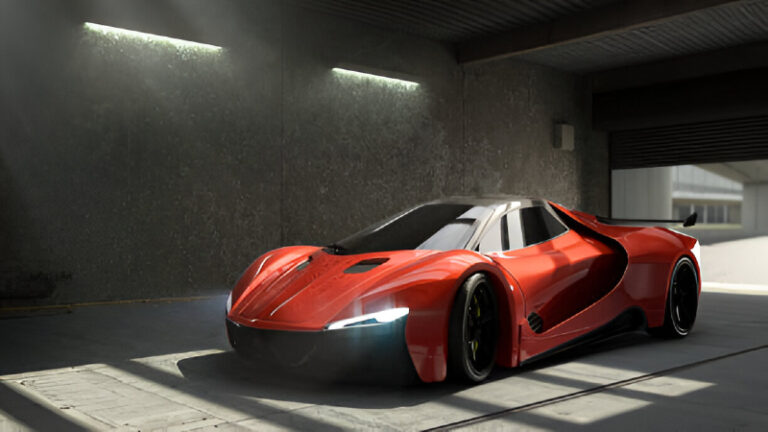The automotive world is a dynamic landscape, constantly shaped by innovation, evolving consumer demands, and strategic shifts from leading manufacturers. As we navigate 2025, a fascinating narrative is unfolding across the Atlantic, showcasing how car brands, particularly from the UK, are not just adapting but actively
The UK automotive industry, despite projecting a modest 2% growth for 2025 (reaching 1.98 million new car registrations but still below pre-pandemic levels), is buzzing with activity. British engineering, synonymous with luxury and performance, is poised to redefine standards with a wave of new releases. But beyond the glitz of high-end vehicles, the market is also witnessing a significant influx of new brands and a persistent challenge from international trade policies.
British Icons
The heart of the UK’s automotive prowess lies in its venerable luxury brands, each charting a unique course for 2025 and beyond. These companies are not merely releasing new models; they are undergoing fundamental transformations, embracing electrification and pushing the boundaries of automotive design and technology.
| Car Brand | Headquarters | Revenue (GBP) | Key 2025-2028 Strategy / Highlighted Model |
| Rolls-Royce | London | £8.86 billion | Return of Wraith, Electric SUV, Phantom EV, Spectre EV coupe |
| Jaguar | Coventry | £4 billion | Complete shift to electric vehicles; GT EV (late 2025) |
| Aston Martin | Warwickshire | £1.3 billion | Vanquish (V12 twin-turbo), Valhalla (hybrid), DBX Project Rambo SUV, Valkyrie racing |
| Bentley | Crewe | £1.2 billion | First EV in 2025; Five-in-Five EV plan (2025-2030) |
| McLaren | Surrey | £228 million | Solus GT (mid-2024), 750S (coupe/spider), Artura GT4, 750S GT3; all-hybrid by 2026 |
Rolls-Royce’s Majestic Evolution
Rolls-Royce, the epitome of ultra-luxury, is making a stunning comeback with modern features integrated into classic designs. The highly anticipated return of the Wraith, alongside the introduction of the Rolls-Royce Electric SUV and the Phantom EV, signifies a dual commitment: preserving timeless luxury while embracing zero-emission driving. The Spectre electric coupe further cements their bold entry into the electric vehicle market, promising exceptional performance alongside unparalleled elegance.
Jaguar’s Electric Leap
Perhaps the most dramatic shift among UK automobile brands comes from Jaguar. Under its Reimagine strategy, Jaguar is set to become an all-electric brand by 2025, phasing out internal combustion vehicles. The upcoming Jaguar GT EV, a luxury electric sedan launching in late 2025, boasts an impressive range of up to 430 miles and rapid charging capabilities. This bold move, including new branding and a focus on high-priced luxury EVs, aims to attract a new generation of urban, environmentally conscious buyers.
Aston Martin’s Performance Hybridization
Aston Martin is redefining performance with exciting new models like the Vanquish, set to debut in early 2025 with a powerful 5.2-liter V12 twin-turbo engine. The mid-engine hybrid Valhalla, arriving mid-2025, pushes boundaries with a combined 1,079 PS. While exploring new segments with the DBX Project Rambo SUV, Aston Martin is also investing £2 billion in a new Battery Electric Vehicle (BEV) platform, signaling their long-term electric ambitions despite current supply chain challenges.
Bentley’s Electrified Future
Bentley is embarking on a significant transformation with its Five-in-Five plan, launching one new EV each year from 2025 to 2030. The first electric vehicle will debut in 2025, produced at their upgraded Dream Factory in Crewe, UK. This £2.5 billion investment underscores Bentley’s commitment to lead the luxury EV market and achieve carbon neutrality by 2030, with a compact electric SUV slated for 2026.
McLaren’s Hybrid Pursuit and Racing Prowess:
McLaren continues to push the boundaries of performance. While the track-focused Solus GT launches in mid-2024, the brand plans an all-hybrid lineup by 2026, building on models like the Artura GT4 and the upcoming 750S GT3. McLaren’s recent Constructors’ Championship win highlights their engineering excellence, with CEO Zak Brown acknowledging a brave risk approach for their 2025 F1 car, reflecting confidence in British innovation.
The US Market
Across the Atlantic, the US automotive market maintains its distinct characteristics, dominated by pickup trucks and larger SUVs. While consumer preferences are somewhat different, the overarching shift towards electrification is a common thread. However, trade relations, particularly concerning potential tariffs, cast a shadow over transatlantic automotive commerce.
The US is the second-biggest importer of British-made cars, accounting for nearly 20% of the UK’s automotive exports. This makes any discussion of tariffs critically important. Recent reports indicate intense negotiations between the UK and Washington to secure exemptions from potential U.S. auto tariffs, which could significantly impact British car brands. The UK also eyes a review of its electric vehicle incentive schemes to better support its domestic industry, rather than indirectly benefiting companies like Tesla through credit sales.
Global Competition Heats Up
Adding another layer of complexity and excitement to the market is the arrival of new car brands, especially from China, in the UK. This influx is a testament to the global nature of the automotive industry and the increasing competition across segments.
| New Brand | Origin | Market Segment / Highlighted Model | Key Characteristic |
| Denza | China | Luxury EV/PHEV Grand Tourer (Z9 GT) | BYD’s Porsche rival, stunning design, EV/PHEV variants |
| Firefly | China | Budget-friendly EV Supermini | NIO’s lower-tier brand, battery-swap technology |
| GAC | China | All-electric Hatchback (Aion UT) | China’s version of the Mini, affordable city driving |
| Mobilize | France | Urban Quadricycle (Duo) | Renault’s urban mobility brand, compact electric solution |
| Onvo | China | Affordable EV Coupe-SUV (L60) | NIO-owned, aims to undercut Tesla Model Y, spacious interior |
These fresh faces are set to challenge established players, offering a diverse range of vehicles from luxury EV grand tourers (Denza) to budget-friendly electric superminis (Firefly) and China’s Mini (GAC Aion UT). This surge of new competition means more choices for consumers and greater pressure on existing manufacturers to innovate and differentiate
Conclusion
The automotive industry is in a state of rapid evolution. From the UK’s steadfast commitment to luxury and performance, now largely electrified, to the US market’s continued embrace of larger vehicles, the trends are clear. The convergence of these trends—electrification, enhanced technology, and personalized experiences—is creating a global automotive landscape that is increasingly interconnected. As 2025 unfolds, expect continued excitement, with British engineering leading the charge in luxury, and global competition fostering an unprecedented pace of change.
Frequently Asked Questions (FAQs)
Which UK car brands are investing in electric vehicles for 2025?
Rolls-Royce, Jaguar, Aston Martin, Bentley, and McLaren are significantly investing in electric or hybrid models for 2025 and beyond.
What are the defining characteristics of the US car market today?
The US market is still dominated by pickup trucks and larger SUVs, but interest in fuel-efficient compact SUVs and sedans, particularly hybrids and EVs, is growing.
How are trade policies impacting car imports between the UK and US?
The UK is actively negotiating with the US to secure exemptions from potential auto tariffs, given the US is a major importer of British cars.
Are new car brands entering the UK market?
Yes, several new car brands, particularly from China, are entering the UK market, offering a range of electric and traditional vehicles across various price points.
What is Jaguar’s main strategy for 2025?
Jaguar’s Reimagine strategy involves a complete shift to electric vehicles by 2025, phasing out internal combustion models and focusing on luxury EVs.
What type of vehicles are most popular in the UK currently?
Compact SUVs and crossovers, especially those with hybrid or mild-hybrid technology, are currently the most popular vehicles in the UK.


